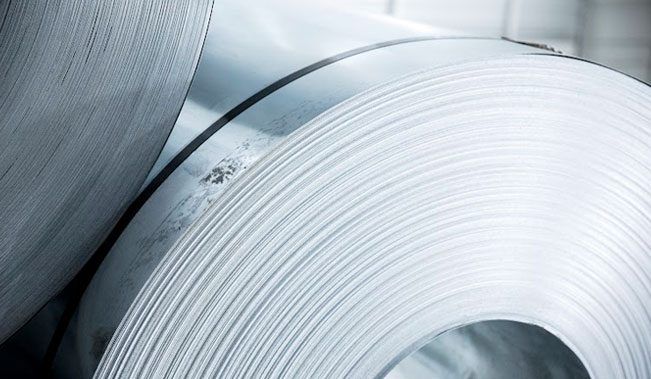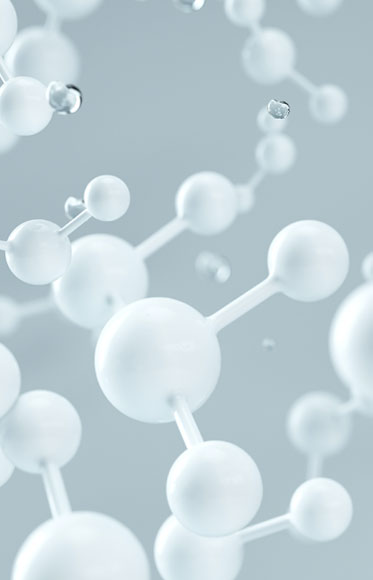Solvay/Syensqo Specialty
Polymers Solef
6008 PVDF
Download the Brochure

ADVANCED
POLYMERS
Solef® PVDF Polyvinylidene Fluoride
Solef® PVDF is a fluorinated semi-crystalline thermoplastic which is obtained by polymerizing vinylidene fluoride. This fluorinated polymer has been manufactured and marketed for more than 30 years, using both suspension and emulsion process developed and perfected by Solvay/Syensqo Specialty Polymers.
Why Solef® 6008 PVDF?
Solef® PVDF, without any additives, has the intrinsic stability inherent to fluoropolymers, even when exposed to harsh environments. It provides the user with a unique combination of properties leading to longer equipment life. The most important properties of Solef® PVDF are listed below:
- Excellent chemical resistance to most aggressive substances and solvents
- Excellent mechanical strength and toughness
- High abrasion resistance
- High temperature capabilities: continuous use service temperature up to 150°C/302°F
- Excellent ageing resistance
- High purity
- Resistance to UV and nuclear radiations
- Excellent intrinsic fire resistance
- Low permeability to most gases and liquids
- Easily melt-processed by standard methods of extrusion and molding
- Wide range of rigid and flexible grades available

Typical Properties of Solef® 6008 PVDF Homopolymer Grades
- Unit
- Solef® 6008
- Test Method
| Density at 23°C/73°F | g/cm3 (lb/ft3) |
1.75 – 1.80 (110 -112) |
ASTM D792 |
| Water absorption (24 h at 23°C/73°F) |
% | <0.04 | ASTM D570 |
| Melt flow index (230°C/446°F) 21.6 kg 10.0 kg 5.0 kg 3.8 kg 2.16 kg |
g/10 min |
0
0
——– |
ASTM D1238 |
| Tensile at 23°C/73°F) (Type IV specimen, 2 mm thick) Stress at yield (50 mm/min) |
0
0 0 MP |
0
0 0 50 – 60 |
ASTM D638 |
| Stress at break (50 mm/min) |
MPa (psi) |
30 – 50 (4,400 – 7,300) |
|
| Elongation at yield (50 mm/min) |
% | 5 -10 | |
| Elongation at break (50 mm/min) |
% | 20 -300 | |
| Modulus (1 mm/min) |
MPa (kpsi) |
1,800 – 2,500 (260 – 360) |
— |
| Notched charpy strength (4 mm thick, 2 m/s, 23°C/73°F) |
J/m (ft·lbf/in) | 40–120 (0.7 – 2.0) |
ASTM D6110 |
| IZOD impact (notched V 10 mm, 23°C/73°F, 4 mm thick) |
J/m (ft·lbf/in) | ——– | ASTM D256 |
| Shore D hardness (2 mm thick) |
——– | 73–80 | ASTM D2240 |
| Abrasion resistance | mg/1,000 rev | 5–10 | TABER CS 17, 1 kg |
| Friction coefficient | static dynamic | 0.2 – 0.4 0.15 – 0.35 |
ASTM D1894 |
|
Crystallinity by DSC
Melting point |
0
°C |
0
170 – 175 |
ASTM D3418 |
| Heat of fusion (80°C/176°F to end of melting) |
J/g (BTU/lb) |
58–67 (25 – 29) |
|
| Crystallization point |
°C (°F) |
134–144 (273 – 291) |
|
| Crystallization heat |
J/g (BTU/ lb) |
54–60 (23–26) |
|
| VICAT point | °C (°F) |
135–145 (275 – 295) |
ASTM D1525 2A |
| Glass transition (Tg) | °C (°F) |
–40 (– 40) |
ASTM D4065 |
| Molding shrinkage (linear) |
% | 2-3 | |
| Thermal stability | °C (°F) |
375–400 (707 – 752) |
TGA. T° for 1% w loss in air |
| Linear thermal expansion coefficient |
10–6/K (10–6/°F) |
140 (78) |
ASTM D696 |
| Thermal conductivity at 23°C/73°F |
W/m · K (BTU·in/h·ft2·°F) |
0.2 (1.4) |
ASTM C177 |
| Specific heat at 23°C/73°F |
0
J/g·K |
0
1.2 |
|
| at 100°C/212°F | J/g·K (BTU/ lb) |
1.6 (0.38) |
| Surface resistivity (voltage < 1 V, after 2 min, 500 V at 23°C/73°F) | Ω | ≥ 1014 | ASTM D257 |
| Volume resistivity (intensity =10 mA, after 2 min at 23°C/73°F) |
Ω · cm | ≥ 1014 | ASTM D257 |
| Dielectric strength at 23°C/73°F, 1 mm thick |
kV/mm | 20–25 | ASTM D149 |
| UL 94 flammability test | Class | V–0 | UL 94 |
| Limiting oxygen index (sheet 3 mm thick) |
% | 44 | ASTM D2863 |
(1) Results achieved with formulated grade (code: XXXX/0000)
Mechanical properties are significantly affected by the sample preparation method.
Typical property values are reported in this document. They should not be interpreted as sales specifications.
Connect With an Expert
Contact us today to learn more about the full line of high-performance Solvay/Syensqo Specialty Polymers.

